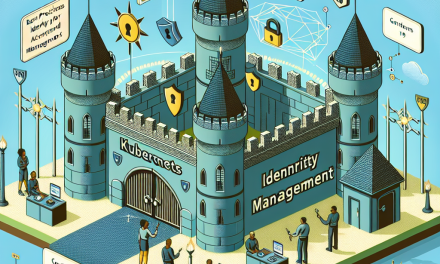Introduction
As we continue to embrace the digital era, the need for robust and efficient DevOps practices has never been more critical. Organizations strive for faster deployment cycles, higher stability, and enhanced collaboration among teams. Kubernetes, an open-source container orchestration platform, has emerged as a game-changer in this landscape. Coupled with GitHub, a powerful platform for version control and collaboration, Kubernetes not only simplifies the deployment processes but also streamlines the entire DevOps lifecycle. In this article, we’ll explore how the integration of Kubernetes with GitHub can boost your DevOps practices.
Why Kubernetes?
Kubernetes allows developers to automate the deployment, scaling, and management of containerized applications. Its features include:
- Scalability: Kubernetes automatically adjusts to changes in demand.
- Self-Healing: It can restart containers that fail, replace containers, and reschedule them when nodes die.
- Load Balancing: Distributes traffic efficiently to ensure optimal performance.
- Declarative Configuration: Changes can be managed through source control, making rollbacks simpler and safer.
GitHub: A Collaboration Hub
GitHub is not just a repository; it’s a collaboration powerhouse that enables teams to work together seamlessly. With its branching and pull request workflows, teams can manage code changes effectively. Features like issue tracking and GitHub Actions elevate the DevOps experience by integrating CI/CD processes directly within the repository.
Integrating Kubernetes with GitHub: A Match Made in Heaven
1. Simplified CI/CD Pipelines
One of the most significant benefits of integrating Kubernetes with GitHub is the ability to create streamlined Continuous Integration and Continuous Deployment (CI/CD) pipelines. With GitHub Actions, you can automate your workflows to build, test, and deploy applications on Kubernetes.
Example Workflow:
- Push Code: A developer pushes code to a GitHub repository.
- GitHub Action Triggers: The push event triggers a GitHub Action workflow.
- Build and Test: Your code is automatically built and tested.
- Deploy to Kubernetes: Upon passing tests, the application is deployed to a Kubernetes cluster.
This setup not only protects against human error but accelerates the release cycle, allowing teams to focus on writing quality code.
2. Enhanced Collaboration
The integration fosters better collaboration among team members. With GitHub’s code review and commenting features, developers can easily discuss proposed changes. Once approved, these changes can be deployed straight to a Kubernetes environment, minimizing friction in the deployment process.
3. Version Control for Kubernetes Configuration
Kubernetes thrives on configuration files defined in YAML format. By storing these configurations in a GitHub repository, teams can leverage Git’s version control features. Changes to configurations can be tracked, rolled back, and audited, ensuring that no configuration drift occurs over time.
Best Practices for Integration
-
Utilize Branching Strategies: Employ Git branching strategies like Git Flow or GitHub Flow to manage code changes effectively.
-
Automate Everything: Use GitHub Actions to automate testing, building, and deployment processes.
-
Security: Consider using tools like GitHub Secrets for managing sensitive information like API keys and credentials.
-
Monitoring and Logging: Integrate monitoring solutions like Prometheus and logging solutions like ELK Stack to gain insights into your Kubernetes applications post-deployment.
Conclusion
The combination of Kubernetes and GitHub offers a powerful solution for streamlining DevOps practices. By automating workflows and enhancing collaboration, organizations can achieve higher efficiency and deliver better software at a faster pace. As businesses continue to evolve in the digital landscape, embracing this integration will undoubtedly provide a competitive edge, paving the way for innovation and growth.
For those looking to take their DevOps practices to the next level, integrating Kubernetes with GitHub is not just an option—it’s a necessity.
If you want to learn more about Kubernetes, GitHub, or other DevOps tools, keep following WafaTech Blogs for updates and tutorials. Happy coding!





